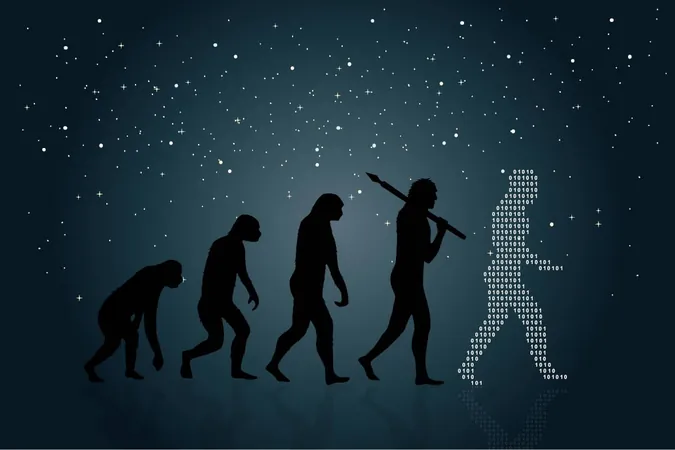
Are We Approaching the Limits of Human Lifespan? Shocking New Research Unveils Limitations
2024-10-07
Author: Michael
NEW YORK — A groundbreaking study published in the journal *Nature Aging* suggests that humanity may be nearing the upper limits of life expectancy, despite ongoing advancements in medical technology and genetic research.
The study raises questions about long-held assumptions regarding aging and could have significant implications for future retirement and financial planning.
Lead researcher S. Jay Olshansky from the University of Illinois-Chicago cautions against underestimating the natural limits of human life, stating, “We have to recognize there's a limit.” With an increasing number of people reaching the age of 100, researchers found that overall lifespan increases, especially in the world's healthiest countries, are tapering off.
Mark Hayward, a demographer at the University of Texas who did not participate in the study, called it “a valuable addition to the mortality literature” and echoed the sentiment that “we are reaching a plateau” in life expectancy. While the potential for scientific breakthroughs exists, Hayward emphasized that current trends do not support dramatic increases in longevity.
Understanding Life Expectancy
Life expectancy is a vital health statistic, indicating the average number of years a newborn is expected to live if current mortality rates continue.
However, it's important to note that it doesn't account for unpredictable factors such as pandemics or medical innovations that could reshape global health.
In examining data from 1990 to 2019, Olshansky’s team focused on nations with the highest life expectancies, including Australia, France, Hong Kong, Italy, Japan, South Korea, Spain, and Switzerland.
Surprisingly, the United States, which ranks poorly in life expectancy compared to these nations, was included for its bold past predictions suggesting a potential surge in longevity.
Who Lives the Longest?
The study highlighted notable trends, revealing that women generally have longer lifespans than men, although recent improvements are occurring at a slower rate.
In the 1990s, life expectancy improved by approximately 2.5 years each decade; however, this shrank to 1.5 years during the 2010s, with almost no improvement seen in the U.S.
The decline in U.S. life expectancy can be attributed to various social and health issues, including drug overdoses, gun violence, obesity, and disparities in access to healthcare.
Even if all deaths before age 50 were eliminated, the researchers estimated a modest increase of only 1.5 years in life expectancy.
Gerontology expert Eileen Crimmins from the University of Southern California commented, stating, “For me personally, the most important issue is the dismal and declining relative position of the United States” when it comes to life expectancy.
The Future of Aging: An Inescapable Limit?
The research indicates that we may be approaching biological limits in human lifespans—an idea Olshansky underscores by suggesting that advancements in medicine are yielding diminishing returns.
He highlights that aging presents unique challenges that make extending life increasingly complex.
While centenarians are becoming more common, with notable cases like former President Jimmy Carter, Olshansky notes that only a small percentage of the population is expected to reach such milestones.
Currently, about 2% of Americans make it to 100, compared to around 5% in Japan and 9% in Hong Kong.
Projections suggest that while absolute numbers of centenarians may rise due to population growth, the percentage of those reaching 100 years old will likely plateau at under 15% for women and 5% for men in most countries.
In conclusion, as we strive for longevity, this study serves as a reminder of the natural limits of life expectancy.
It invites reflection on how we approach aging, healthcare, and our expectations for the future in a rapidly evolving world.
Stay tuned for more updates on this topic as experts continue to study the intricate dynamics of human lifespan!









 Brasil (PT)
Brasil (PT)
 Canada (EN)
Canada (EN)
 Chile (ES)
Chile (ES)
 España (ES)
España (ES)
 France (FR)
France (FR)
 Hong Kong (EN)
Hong Kong (EN)
 Italia (IT)
Italia (IT)
 日本 (JA)
日本 (JA)
 Magyarország (HU)
Magyarország (HU)
 Norge (NO)
Norge (NO)
 Polska (PL)
Polska (PL)
 Schweiz (DE)
Schweiz (DE)
 Singapore (EN)
Singapore (EN)
 Sverige (SV)
Sverige (SV)
 Suomi (FI)
Suomi (FI)
 Türkiye (TR)
Türkiye (TR)